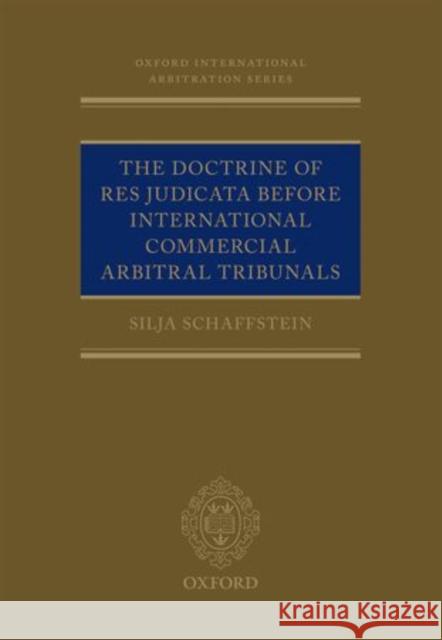The Doctrine of Res Judicata Before International Commercial Arbitral Tribunals » książka
The Doctrine of Res Judicata Before International Commercial Arbitral Tribunals
ISBN-13: 9780198715610 / Angielski / Twarda / 2016 / 352 str.
The Doctrine of Res Judicata Before International Commercial Arbitral Tribunals
ISBN-13: 9780198715610 / Angielski / Twarda / 2016 / 352 str.
(netto: 968,28 VAT: 5%)
Najniższa cena z 30 dni: 972,68
ok. 30 dni roboczych
Bez gwarancji dostawy przed świętami
Darmowa dostawa!
Today, international commercial disputes regularly involve multiple parties, contracts, and issues. As a result, the number of disputes that are tried in two or more different forums has increased, giving rise to difficult issues regarding the conclusive and preclusive effects of prior judgments or awards. As a result, the doctrine of res judicata , which requires that a final decision by a court or arbitral tribunal is conclusive and should not be re-litigated, is of increasing significance. Dr Silja Schaffstein provides the first practical and comprehensive guidelines for matters of res judicata for international commercial arbitration practitioners.
Structured in two parts, part one examines the doctrine of res judicata in domestic and international litigation whilst part two determines whether and how the res judicata doctrine may be applied by international commercial arbitral tribunals. Dr Schaffstein identifies situations in which res judicata issues are likely to arise before international commercial arbitral tribunals and provides actionable solutions. The book determines the key features of the doctrine of res judicata in the laws of England, the United States, France and Switzerland, as representative of the common law system on the one hand and the civil law system on the other hand. The book also presents the doctrine of res judicata in the context of private international law, alongside its crucial aspects and application in public international law by international courts and tribunals. The aim of the work is to demonstrate how transnational principles of res judicata should be elaborated for international commercial arbitral tribunals. The analysis looks at how the doctrine should be applied by international commercial arbitral tribunals in their relations with other arbitral tribunals or state courts, and within the arbitral proceedings pending before them. The work sets out the transnational principles in the form of guidelines for international arbitrators.










